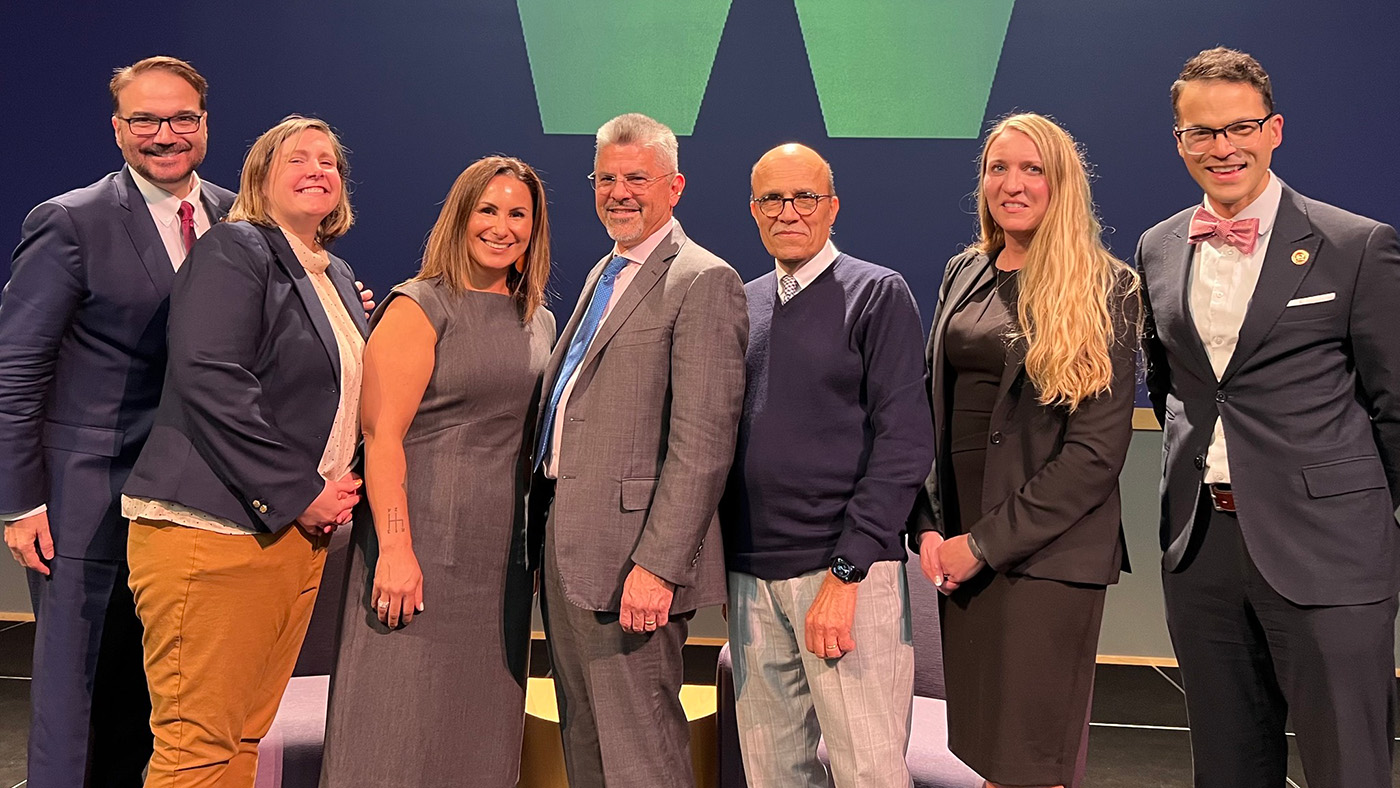Washington Supreme Court Chief Justice Steven González shares legal insights during conversation at UW Tacoma
Seattle University School of Law organized and hosted one of the first major events at its new South Sound Hybrid Hub earlier this week, with Washington Supreme Court Chief Justice Steven González, a longtime champion of access to legal education, visiting the campus of the hub’s founding principal partner, the University of Washington Tacoma. In conversation with Dean Anthony E. Varona, González headlined the second Dean’s Luminaries in Law Lecture and Conversation Series event of the 2024-25 academic year.
Launched earlier this year in one of the country’s biggest cities without a law school, the hub provides significant in-person and virtual programming, counseling, networking, employment, and experiential learning opportunities and resources for both UW Tacoma undergraduates and students in Seattle U Law’s pathbreaking Flex JD hybrid-online degree program. The law school has since launched two other Hybrid Hubs in Central Washington and Anchorage, Alaska.
“The South Sound Hybrid Hub is an innovative, first-of-its-kind program that expands Seattle U Law’s research beyond its main campus in the heart of Seattle,” said Varona at the start of the event. “We are very proud to partner with UW Tacoma and have this be our first official post-launch event.”
González has served on the Washington Supreme Court since 2012 and was sworn in as the first chief justice of color in 2021. He previously served for ten years as a King County Superior Court judge in which he presided over criminal, civil, juvenile, and family law cases.
Varona noted that González is a role model for law students, regularly attending events and participating in programs at Seattle U Law, such as the Law School Admission Council PreLaw Undergraduate Scholars Program. He also frequently takes part in the Northwest Minority Job Fair and serves as a board member for the Washington Leadership Institute, a program that aims to develop bar and community leaders who reflect the diversity of the state.
“He truly is the best chief justice in the country, with very good reason,” Varona said. “He has been a powerful advocate for equity and justice before and throughout his distinguished career on the Washington Supreme Court.”
González began by talking about his family of immigrants — Eastern European and Jewish on his mother’s side, Mexican on his father’s side — who all had the common experiences of escaping persecution and violence, as well as encountering discrimination when they arrived in the U.S.
González was the first in his family to attend college, where he discovered a passion for learning languages and traveling the world, including studying and living in Japan, China, and Guatemala. He carried this love into his legal career.
“I look for, when I hire, people who have expressed a curiosity and facility for communicating with people different from themselves,” González said. “To understand your client as a judge, that diversity of language and culture is critical.”
His own experiences abroad motivate González to push for more translation services for non-native English speakers in courtrooms. He explained that despite his Japanese language skills and his time spent living there, he would still require an interpreter in a Japanese courtroom.
“Many people don’t understand why it’s so important to have a really deep understanding of what’s happening in your own language, to know what your rights are and what’s happening to you,” he said, noting that legal forms are too complicated even for some native English speakers to fully understand.
González shared his additional concerns about the judicial system, including a lack of diversity on juries, the state’s current public defender shortage, and threats from certain types of technology, such as AI.
González professed his enthusiasm for volunteer work, encouraging other attorneys to make time for pro bono clients. He observed that some of the most meaningful cases in his career have been pro bono.
“A license to practice law is a privilege. It’s a duty,” he said. “We are honor-bound to help people access this justice system that we are now officers of.”
If you were not able to attend the event, you can download a video of it here.

